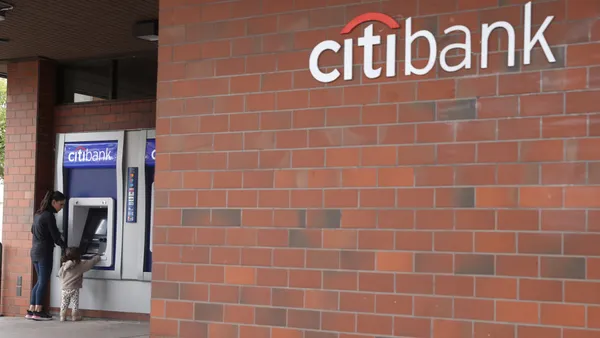Dive Brief:
-
Banks that service hemp-related businesses no longer need to file suspicious activity reports, according to new guidance that five regulators issued Tuesday.
-
Hemp, a strain of the cannabis plant that typically contains less than 0.3% of the psychoactive substance tetrahydrocannabinol (THC), was removed from the controlled substances list with the passage of the Farm Bill in 2018, but banks have been reluctant to service the industry.
-
The long-awaited guidance, released by the Federal Reserve, the Federal Deposit Insurance Corp. (FDIC), the Financial Crimes Enforcement Network (FinCEN), the Office of the Comptroller of the Currency (OCC) and the Conference of State Bank Supervisors, will come as welcome news to hemp growers, banks and some lawmakers who have long called for clarification.
Dive Insight:
The guidance comes a little more than a month after the U.S. Department of Agriculture released draft rules for growing the crop.
"Because hemp is no longer a Schedule I controlled substance under the Controlled Substances Act, banks are not required to file a Suspicious Activity Report (SAR) on customers solely because they are engaged in the growth or cultivation of hemp in accordance with applicable laws and regulations," the guidance states. "For hemp-related customers, banks are expected to follow standard SAR procedures, and file a SAR if indicia of suspicious activity warrants."
FinCEN will issue additional guidance after it further reviews and evaluates the USDA's interim final rule, according to the memo.
Financial institutions are still required to follow FinCEN guidance for marijuana-related businesses, the guidance states.
"Bank customers engaged in hemp-related business activities are responsible for complying with the requirements set forth in the 2018 Farm Bill and applicable regulations," the regulators wrote.
The American Bankers Association, a trade group, applauded the release of the joint guidance.
"We welcome the guidance issued today by federal banking regulators, FinCEN and the Conference of State Bank Supervisors, which provides greater clarity on banks' obligations related to hemp producers," ABA President and CEO Rob Nichols said in a statement.
"We are pleased that the guidance also notes that bank customers are responsible for complying with regulatory requirements surrounding hemp, not the banks who serve those customers. We appreciate the steps regulators have taken today to clarify regulatory expectations for banks, and we look forward to working with them as they develop additional guidance," Nichols said.












